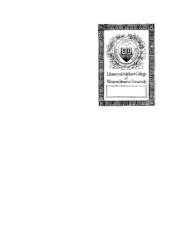%u3ac't %Seuitic ert f 'aunlation Voeries.
%u3ac't %Seuitic ert f 'aunlation Voeries.
%u3ac't %Seuitic ert f 'aunlation Voeries.
You also want an ePaper? Increase the reach of your titles
YUMPU automatically turns print PDFs into web optimized ePapers that Google loves.
xx iv ... -IU;; Ai, LI 1, )I jj'> .<br />
vife, anl tlhy were t' rule the wuide earth : and so he took hr:rT<br />
kissed heri, nud dried her tears, and whatever she desired was<br />
done for her.<br />
The explanation of the 'mourning of Lriskigal is evidently<br />
to be sought here, but what it means is difficult to say. The<br />
writer of the Teli-El-Amarna tablet perhaps intended an explanation<br />
of the word Iriskigal, when he finished his story with<br />
minamma tiris.ini, ' whatever thou askest me.'<br />
No. 267A. When the heavens are darkly smitten (?), there will<br />
be plenty in the land.<br />
Silla has sent by the hand of Sakin-sumi thus, 'I will put thee<br />
to death, for why dost thou say " Sill has taken away my prop<strong>ert</strong>y;"<br />
now Munnabitu is the witness of thee, and Bil . . .is my judge.'<br />
What witness is there in regard to such of my prop<strong>ert</strong>y as he has<br />
taken ? If he learns all that I have told the king (and there is still<br />
some which I have not told the king) he will take it all. I have<br />
prayed in my father's house, but he has always acted craftily; he is<br />
always plotting against the men of my family (?). Let not the king,<br />
my lord, leave me. From Zakir.<br />
Obv. r. This text has been published by Pinches, Texts in<br />
the Babylonian Wedge-writing, p. Io, and again by Harper,<br />
Assyriaan Letters, No. 416. The text of the first line may be<br />
read Ana ganint adir-mia HI-is..<br />
Rev. I. iss', lami2i; verbs in dependent sentences and<br />
therefore with final -u.<br />
Rev. 4. KaIt u/tili. To 'lift the hands' is often an<br />
expression for prayer. Cf. the Series the Lifting of the Hand'<br />
(King, Babylonian Mfagic).<br />
Rev. 6. 6.msa-ti-ia. Possibly this may be amil.sa balaii-ia;<br />
for this use of baldtu, cf. No. 124, rev. 5.<br />
XIv OMENS FROMI ECLIPSES.<br />
No. 268. I have not informed the king, my lord, of the<br />
account of the eclipse with my own mouth, I have not yet written,<br />
so I send to the king. Of the eclipse, 'its evil up to the v'c1;<br />
month, day, watch, point of light where it began and where i,::<br />
Moon pulled and drew off its eclipse-these concern its c' -<br />
I<br />
I<br />
4<br />
1 i5 A<br />
1<br />
I<br />
J<br />
.R.<br />
A:<br />
I'<br />
OMENS FROM ECLIPSES. i.xxxv<br />
Si\an l Aharrci, and a decision to Ur is given: it is evil for the<br />
fourteenth day, (which they explain 'the fourteenth day = Elam.')<br />
The exact point where it began we do not know; the Moon drew<br />
off part of its eclipse in a south-westerly direction. It is evil for<br />
Elam and Aharrfi. From the east and north, when bright, it is<br />
lucky for Subarti and Akkad; it says that they will have favour (?)<br />
The omen of all lands -the right of the Moon is Akkad, the left<br />
Elam, the top Aharru, the bottom Subartu ..<br />
(Rev. 3 f) The omen is favourable and the king, my lord, may<br />
be content. Jupiter stood in the eclipse; it portends peace for<br />
the king, his name will be honourable, unique . . Of that name,<br />
let the king be bountiful towards anyone who shall greet the king;<br />
if the king be humble, the king of the gods of heaven and earth will<br />
send peace to the king, my lord. The king may say something thus:<br />
'The king of the gods (thou sayest) will send peace; why then hast<br />
thou sent this about Sirrapu and Arubl ?' I thus in my turn, 'Let<br />
the king go on in his work, let him continue upon his work, and<br />
may the king, my lord, be happy. May Bel and Nebo give all lands<br />
to the king, my lord.'<br />
The king, my lord, gave re' a command saying, 'keep my<br />
watch and tell me what happens.' Now all that has taken place<br />
before me with a propitious greeting to the king, my lord, unto the<br />
king I send. Twice, thrice . in the presence of the king his<br />
hands () . . . and may the king enter into the despatches (?) .<br />
that I have sent true words to the king. From Munnabitu.<br />
Obv. 2. kzmu 'instead,' 'on the other hand.'<br />
Obv. urrilu, evidently of the same root as zrru 'dayvlight,'<br />
light.'<br />
Rm. I93, from Zakir has not been ins<strong>ert</strong>ed. The obv. is much<br />
broken; the rev. gives the omens for an eclipse from the ist to the<br />
30th of Siwan, for an eclipse on the I4th of Siwan (as in No. 270,<br />
rev. i), for Pabilsag (as No 271, obv. 8). Rev. 13 f explains<br />
'The evening watch is for corpses, the evening watch for three<br />
months and days ... the'. . is Akkad, Siwan is Aharrf, the<br />
fourteenth day is Elam.'<br />
| No. 269. When HU. BI. A is dark in the west, there will be<br />
~: 1a famine for the king of'Abarrf . . . hen . . is dark and a

















